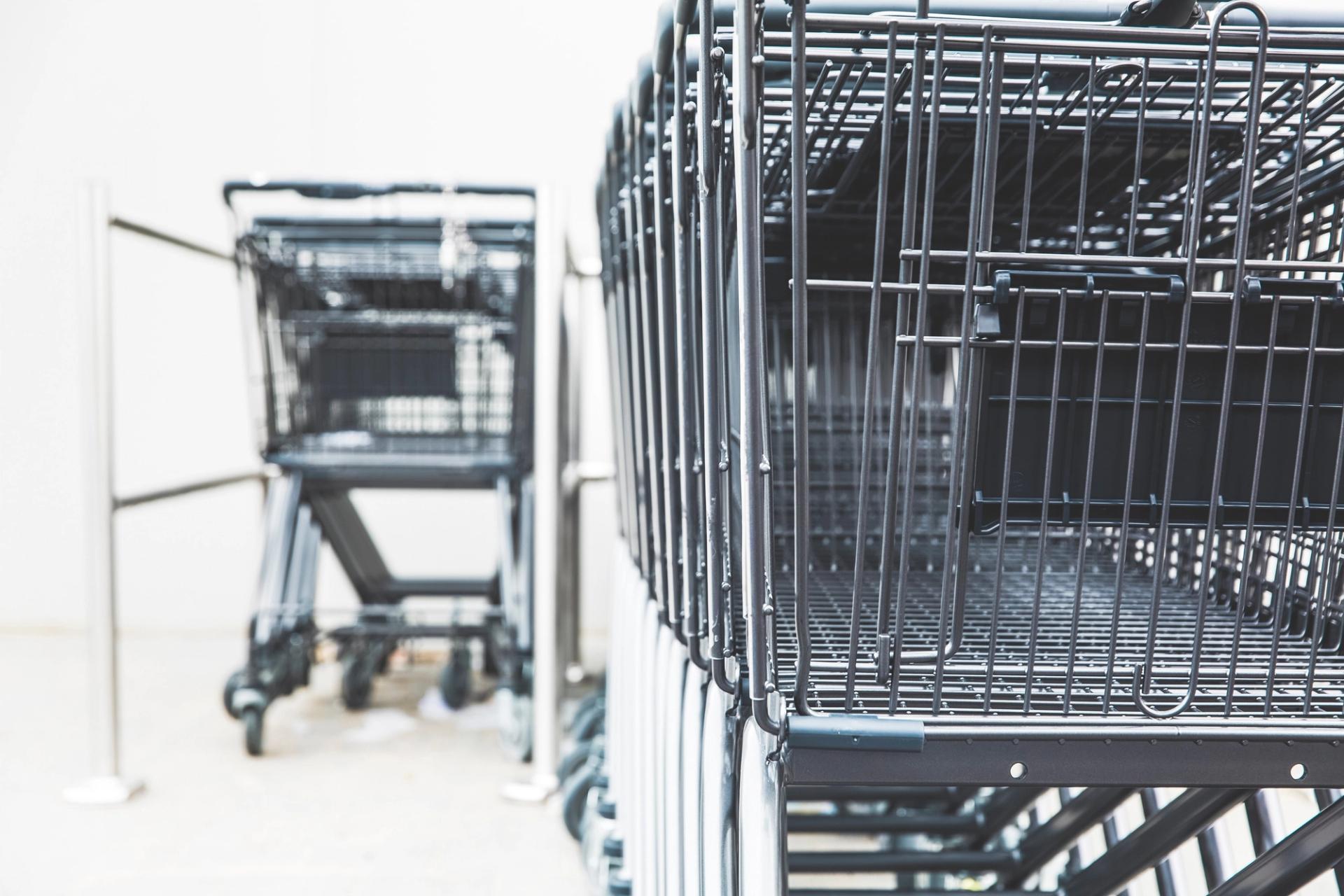Shopping and eating habits post COVID-19
August 16, 2021
- New Insight

Frankfurt, 16.08.2021. Snackification, Ghost Kitchens, instant delivery – through the forced change of eating and shopping habits during lockdowns, food retailers and restaurants have devised and immediately implemented new business models within a few months. Peter Lammers, expert for nutrition and agriculture at FTI-Andersch, names the five most important trends that will shape the industry in the future.
"The trends were already visible before Corona", says Peter Lammers. "But the pandemic has given them the appropriate speed to really break through more broadly and to differentiate. That's why we assume that these trends will become established in the long term."
1. Snackification: Why portions are getting smaller – and why every snack still has to be an experience
A large percentage of the working population has spent the lockdowns in the home office. And in addition to work, childcare and home schooling, as well as housekeeping, have had to prepare their own meals. "This broke up the breakfast-lunch-dinner triad for many," says Peter Lammers. "Because food was prepared and eaten when there was time. And rather in quicker to prepare, smaller portions." This 'snackification' is already widely recommended by nutritionists as healthier than three main meals. Peter Lammers says: "Whereas snacks used to be associated with unhealthy eating, the opposite is true with Snackification. Small portions with high quality are becoming more and more popular - inspired by Spanish tapas and Asian cuisine." The important thing is: it still has to be quick and easy. "And in the best case, it still delivers a little experience," says Peter Lammers. For example, re-seasoning with supplied seasoning salt or spreading the dressing. Lammers: "Just as the home office will not disappear, neither will this trend. This is a great opportunity for food retailers and restaurants, to make an additional offer."
2. Ghost Kitchens: Why delivered food won't revert to fast-food levels – and is a real alternative to going to a restaurant
The closing of the restaurant business has led to despair among many restaurateurs. "And for some, real new business," says Peter Lammers. "Some kitchens have been converted to making high-quality food ready for delivery within just one or two weeks of the first lockdown. A previously almost unthinkable development to compete with pizza and kebab delivery services in the future." More kitchens have followed suit after the summer of 2020. In almost all metropolitan areas, star chefs have also tweaked their creations into takeaway options during the lockdowns. Peter Lammers says: "While the desire for eating out has increased, the feeling of being able to eat really good, high-quality food at home – without having to cook for yourself – has set in parallel. It's an experience that many people want to continue even after the pandemic is over." In the US in particular, many restaurateurs have set up so-called 'Ghost Kitchens' (also known as 'Dark Kitchens' or 'Cloud Kitchens'): that is, kitchens that specialise solely in delivering or taking away food. "Ghost Kitchens are a great opportunity for restaurateurs to tap into additional revenue potential in the future, in addition to indoor space and patios. And it also offers a great opportunity to those kitchens that may not have been able to rent an optimal 'location'. Ghost Kitchens will significantly change the restaurant industry for years to come."
3. From 'Organic' to 'Organic & Regional': Why regional identification is becoming more and more important – and travel in the future will only strengthen this feeling
Travel has become a rare state of emergency since the Corona pandemic began. "For many people, this has led them to become much more engaged with their immediate surroundings," says Peter Lammers. "And suddenly discovered all the regional suppliers, farm shops and jam producers. With the holiday money they saved in their pockets, they were happy to buy the more expensive regional products and at the same time acquired the feeling that they had done something good for their immediate living environment." In this regard, the trend towards regionalization complements the trend toward purchasing healthier foods that has been going on for years. "If 'organic' is made tangible locally, then the willingness to buy is even greater than before. That's why many supermarkets today not only offer organic food, but also regional products, and also display this separately. Increasing numbers of restaurateurs are naming the exact producers of meat and vegetables, for example in the asparagus season. This has led to real branding." The FTI-Andersch expert does not expect this trend to reverse as travel resumes. Lammers says: "On the contrary. Many will proudly refer to what they have discovered and experienced back home, give host gifts. And upon return, look forward to being able to eat 'their' food again."
4. One-Stop-shop: Why supermarkets can't just be warehouses anymore – and they need to learn from the mistakes of department stores
The end of department stores did not come suddenly – only for those affected. In truth, people's shopping behavior had long since changed. Boutiques, unusual stores, experiences. Everything that department stores could no longer deliver. "Except for those who understood this trend and jumped on it," says Peter Lammers. “By accommodating store-in-store concepts, special brand promotions or a top restaurant in the large area.” The corona pandemic could have intensified a similar trend for supermarkets. In the time when shopping was declared a danger zone, many wanted one thing above all else: do everything with one purchase. “More and more supermarkets are starting to offer the regional products mentioned here in separate displays: whether in the corner for jams, at the special counter for game shot in the Eifel or in the sushi shop with their own brand. They make it easier for people to consciously purchase the high-quality groceries in one central location instead of going to many different shops. In the long term, there will be supermarkets that will more closely match the discounters. And the ones that will enable markets in the market: with their own counters, areas and staff.” An example: the 1-star restaurant 'Setzkasten' is housed in an Edeka supermarket in Düsseldorf.
5. Delivery Immediately: Why a multi-day pre-order will soon no longer be accepted – and launchups will fill this gap, if retailers don't do it themselves
While the supply of food was still in its infancy before the Corona crisis, it initially collapsed almost under an overflowing demand in the first lockdown. Itwas able to develop over the months of the pandemic in such a way that today reliable delivery is possible with two to three days' notice. Peter Lammers says: "This already helps many people significantly to reduce their shopping time. But it has the disadvantage that a lot must be planned in advance. But as soon as the country reopens on a large scale, people will want to make shopping and eating decisions much more spontaneously again." That's why startups like ‚Message in a Bottle 'or ‚Gorillas‘ have made purchases possible that are delivered within hours or even minutes. "These offerings are still in their early stages and not widely available," says Peter Lammers. "There are assessments that they are not economical and therefore will not carry themselves. But if you look at other regions of the world, such as Asia, you will see that these offers have been a reality there for years. There is therefore no question that this development will also take hold in Germany – the question is how quickly it will happen. Food retailers in particular still have the chance to help shape this development themselves by radically optimizing their processes and expanding their reach. Otherwise, they could lose the delivery business to third-party providers in the medium term."
Further insights into trends and developments are provided by the new survey 'Shopping and eating habits post Covid-19: What changed, what remained?' by FTI-Andersch. You can download the document below.
About FTI-Andersch:
FTI-Andersch is a management consultancy that supports its clients in the development and implementation of sustainable future/performance and restructuring concepts. FTI-Andersch actively supports companies that have to deal with operational or financial challenges - or that want to align their business model, organisation and processes for the future at an early stage.
Clients include, in particular, medium-sized companies and corporations that operate internationally. FTI-Andersch is part of the internationally active FTI Consulting Group (NYSE: FCN) with more than 6,400 employees.
Your Contacts
 Peter Lammers
Peter LammersPartner